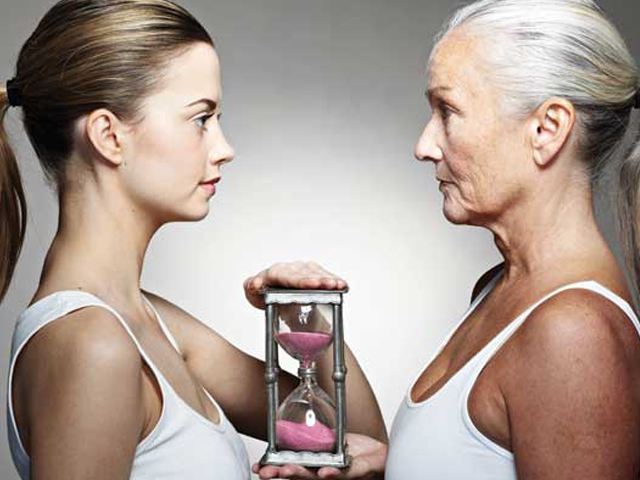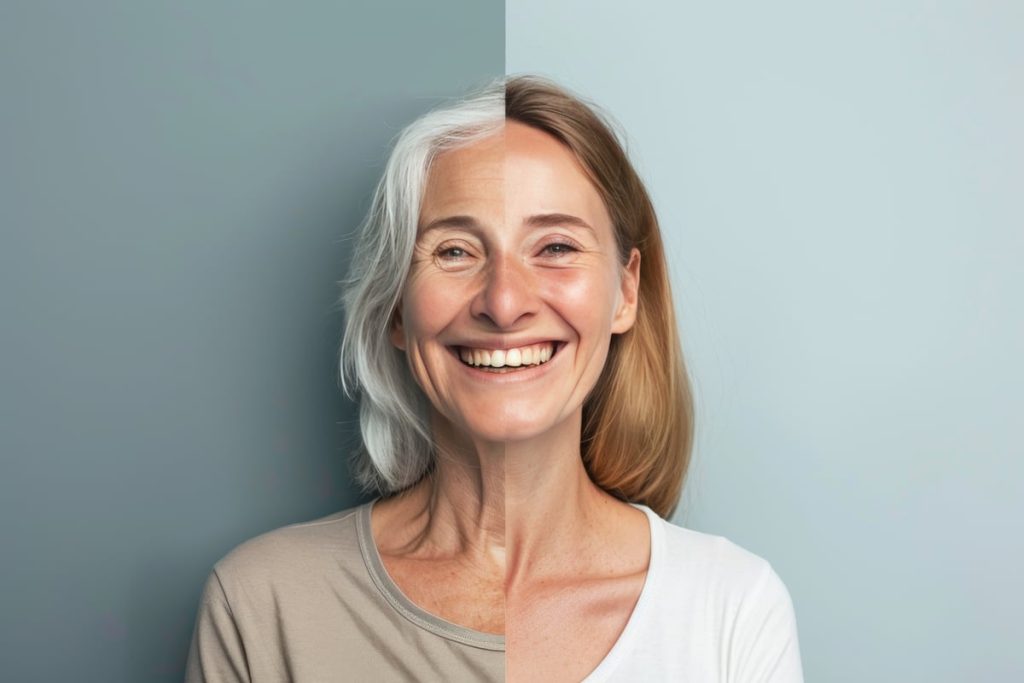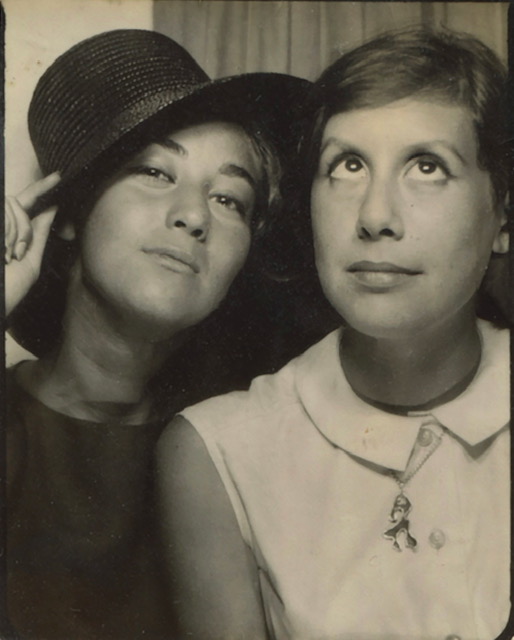The luxury skin-care firm Estée Lauder just announced a partnership with the Stanford Center on Longevity. According to the press release, the goal of this new “longevity expert collective” is to “reframe the conversation from anti-aging to visible age reversal.”
Let’s be clear: “anti-aging” and “age reversal” are the same. “Age reversal” is just the latest beauty-industry buzzword for the latest anti-aging trend. Take Kim Kardashian’s announcement of her new luxury skin–care line, for example: in the same article, she renounced the term “anti-aging” and offered to “eat poop every single day” if it made her look younger. I call bullshit.
Nothing in the universe is getting any younger. But the promise of “agelessness” moves a lot of product, especially in the beauty industry. Companies target ever-younger demographics with the same message: aging is to be feared and fought. And what a market! “Anti-aging is the ultimate capitalist goal, because it’s physically impossible,” observes beauty-culture critic Jessica DeFino. “To try to anti-age is to be a consumer for life.”
It is demoralizing to see the Stanford Longevity Center sign on to help a multinational cosmetics company acquire customers for life. Stanford’s stated goal is different: to support discoveries and practices that enable healthy aging. That’s the mission of their new Aesthetics & Culture program, where the cosmetics giant will be funding research activities and post-doctoral fellowships. It must be lot of money. Because the notion that these goals genuinely align—that “age-reversing” skin care will encourage healthy aging—is, to put it mildly, a stretch.
Little of the Sanford Center Director Laura Carstensen’s statement [italicized below] about the new partnership holds up under scrutiny.
We know that aging well involves feeling good about ourselves.
True. But no one makes money off satisfaction. People who feel good about themselves have made peace with how they look. They don’t invest in expensive “remedies” for a “problem” invented by an ageist, sexist, capitalist society: looking your age. The beauty industry feeds and profits from age shame and age denial. Those are polar opposites of what actually makes us feel good about ourselves: confidence and authenticity.
Yet, little research has explored links between appearance and well-being.
On the contrary, if we’ve learned anything from the body acceptance movement or the proliferation of social media, it’s that a focus on appearance is detrimental to mental and physical health—especially to self-esteem, and especially for women.
Extended life expectancy offers us the opportunity to gain a deeper understanding about how people subjectively experience vitality and communicate this experience to others.
Um, okay.
We believe that skin, as the largest organ, plays a sizeable role in conveying this vitality.
I don’t envy Carstensen for having to come up with this formulation. I can’t say it out loud with a straight face.
No doubt this new “skin longevity platform” will yield luxury regimens that enable wealthy people to stay slightly less wrinkly for slightly longer. They are no recipe for enhancing vitality and well-being over the long lives we all hope to enjoy. We age well by adapting to change, not by struggling to stop the clock.
Imagine the enormous, evidence-backed health benefits of spending those millions on ageism awareness education instead.



